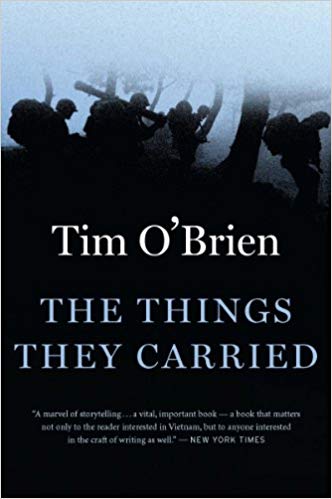

This article is an excerpt from the Shortform summary of "The Things They Carried" by Tim O'Brien. Shortform has the world's best summaries of books you should be reading.
Like this article? Sign up for a free trial here .
How does Ted Lavender die in The Things They Carried? What is the significance of his death?
Ted Lavender is shot in the head and killed outside a small village during the Vietnam War in The Things They Carried. His death comes entirely out of the blue and deeply impacts his commanding officer.
We’ll cover how Ted Lavender dies and how his fellow soldiers deal with his death. Learn how Lavender’s death (and the reactions to it) exemplify the themes of the novel.
How Does Ted Lavender Die?
How does Ted Lavender die? One of the men under Cross’s command, Ted Lavender, is shot in the head and killed while the company is stationed outside a small village. His death comes entirely out of the blue, without warning. By this point, the burden of war has hardened the men—death is no longer (at least outwardly) a cause for shock or displays of grief. They coldly and unemotionally observe how Lavender’s body hit the ground. They note that his death was un-dramatic and oddly mundane—in their words, “the poor bastard just flat-fuck fell. Boom. Down. Nothing else.” Of the 17 men—now 16—only Rat Kiley shows any shock as he repeatedly remarks, as if in shock, “The guy’s dead.”
In lieu of expressing their grief, the men find their emotional outlet by subjecting a local Vietnamese village to an orgy of mayhem and destruction. They burn homes, destroy food stocks, slaughter domestic animals, and then call in artillery to raze the place to the ground while they watch.
How does Ted Lavender die, and what is the impact of his death on the other soldiers? The men joke and put on a mask of weary indifference to cope with the threat of death that hangs over their existence. When someone dies, they are, “offed,” “lit up,” or “zapped.” Even the death of one of their own, Lavender, brings the same chorus of jokes. They sneer about how Lavender (who constantly took tranquilizers to cope with the fear of war) is serene and tranquil now.
Cross is consumed with guilt over Lavender’s death, as he has been—and will be—about all the men who die under his command. He believes that he was daydreaming and distracted while thinking about Martha, and that this led to Lavender’s demise. Wracked with guilt and shame, he is afraid to cry in front of the men. He retreats to his foxhole to weep, for Lavender, for his unrequited love for Martha, and for the world he has lost to war. The morning after Lavender’s death, Cross burns Martha’s letters and photos. He would sever the connection to his old life, commit now to his duties as a soldier—and nothing more. “Love” would no longer be a factor.
Among the men of Alpha Company, only one soldier, Kiowa, a Native American who carries his New Testament on his person at all times, shows any introspection. When death strikes the company, he is always the one who encourages his comrades to talk about their experiences rather than submerge them in acts of violence or displays of emotional cruelty. Seeing Cross’s despair, Kiowa wishes to himself that he could feel for Lavender as Cross does. But instead, all he can think about is the sound of Lavender’s body hitting the ground. These are the consequences of how Ted Lavender dies.
How does Ted Lavender die? He’s shot in the head out of the blue.
———End of Preview———

Like what you just read? Read the rest of the world's best summary of "The Things They Carried" at Shortform . Learn the book's critical concepts in 20 minutes or less .
Here's what you'll find in our full The Things They Carried summary :
- What the Vietnam War was like for soldiers on the ground
- How Vietnam soldiers dealth with the psychological stress of death around them
- How fictional stories can be truer than the truth






